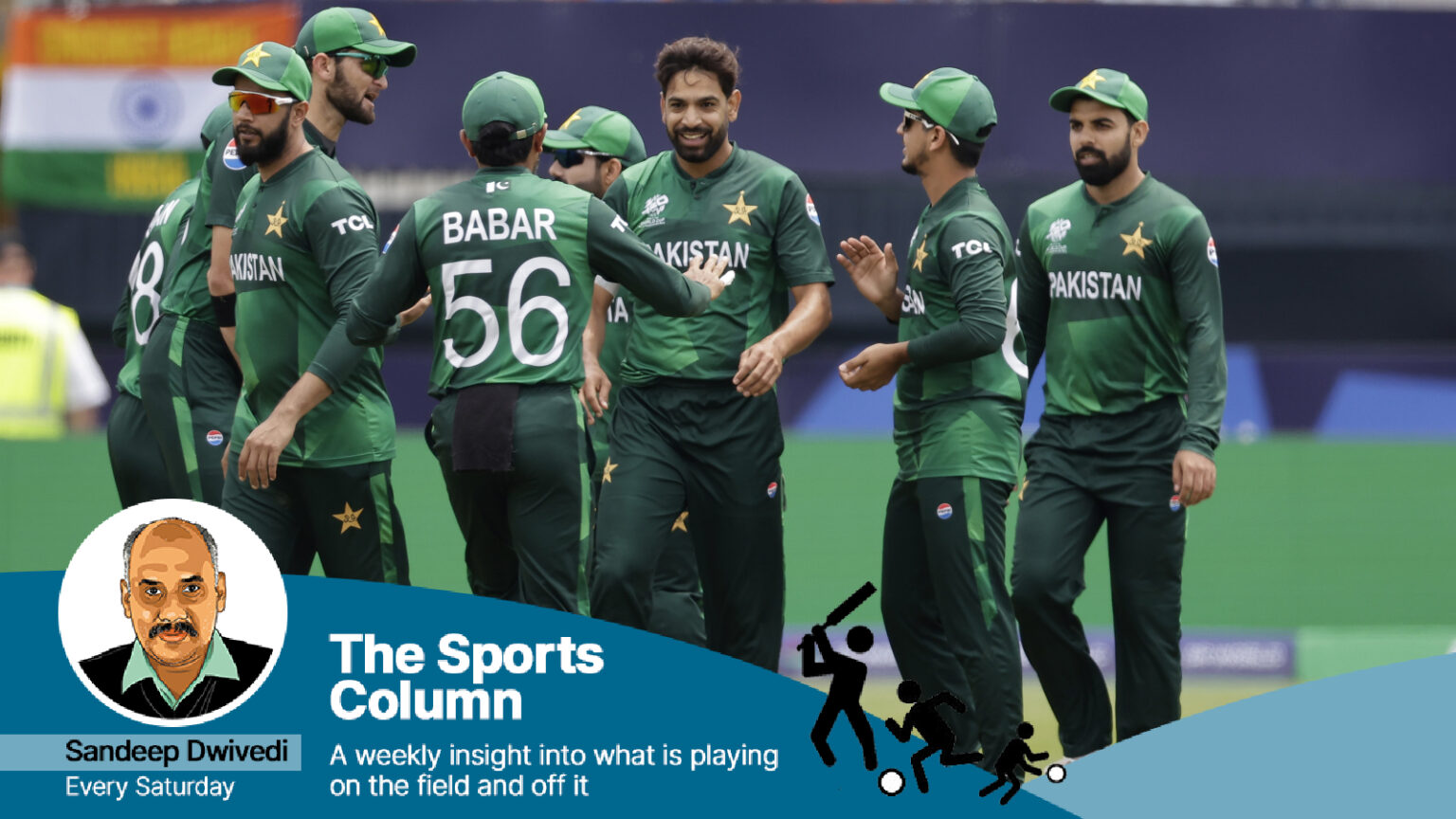Ahmed Shehzad, once likened to the Virat Kohli of Pakistan cricket, has transformed into a bitter, angsty television expert at the age of 32. Known for his dramatic flair and tendency to ham up his presentations, Shehzad’s recent outburst following Pakistan’s T20 World Cup defeats to USA and India showcases his penchant for overacting.
During a heated tirade, Shehzad brandishes a chit with damning statistics about the Pakistani captain Babar Azam, pointing out his lackluster performance in crucial tournaments. Shehzad’s theatrical display culminates in a dramatic toss of the paper, symbolizing Babar’s alleged failures on the big stage.
This outburst is just one example of the heightened emotions surrounding Pakistan cricket, with other pundits like Basit Ali also expressing their frustrations in harsh terms. The atmosphere is tense, with tempers running high and voices raised in criticism.
In this era of social media and instant reactions, cricket pundits and fans alike are quick to jump on the bandwagon of outrage, capitalizing on the emotionally charged environment following Pakistan’s disappointing performances. The rise of “Outrage Inc.” as a thriving business model highlights the eagerness of audiences to engage with sensational content.
However, amidst the chaos, there is a sense of introspection about the true nature of this outrage culture. The historical context of Pakistan cricket, including past scandals and controversies, raises questions about the validity of such extreme reactions to sporting setbacks.
In the midst of this turmoil, the narrative of India’s schadenfreude towards Pakistan’s struggles adds a layer of complexity to the situation. The interplay between rivalries, media sensationalism, and fan engagement creates a unique dynamic that transcends traditional sporting analysis.
Ultimately, as the echoes of criticism reverberate among former players and pundits, it is essential to consider the larger implications of this outrage culture on cricket discourse. The fine line between passionate support and toxic negativity must be navigated carefully to preserve the integrity of the sport and foster a more constructive dialogue moving forward.
